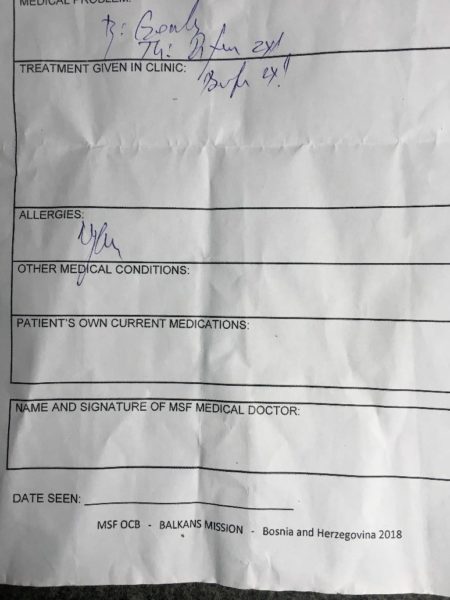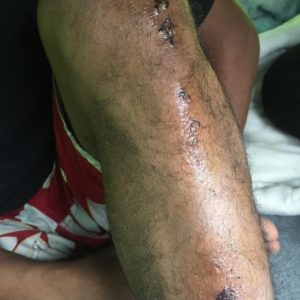The respondent walked in a group of 32 men from Velika Kladuša (BIH) to Croatia, and from there to Slovenia.
When the group was crossing the road A1, they were caught by three Slovenian officers. They asked them to show their identification documents, but they didn’t have any. Then, they searched their bags and frisked their bodies but didn’t take any of their belongings.
The respondent told the officers that he wanted to stay in Slovenia, apply for asylum and work there. But the officers only responded:
“No, no, no”.
Following that, all 32 were transported to a police station, where they were detained in a cell for one night.
The Slovenian officers were treating them with respect, giving them new clothes, water and food. Their fingerprints and photos were taken. For the respondent, it was the second time being arrested in Slovenia, so once the officers had taken his fingerprints, they could find the information about his previous detention. They asked the 32 individuals to sing eight papers, but because they were written in Slovenian and there was no translator present, they didn’t understand them. Only two 18-year-old individuals of their group were able to access the asylum procedure and were later transported to an asylum accommodation. The following day, the rest of them, including the respondent, were transported to the Croatian border and handed over to the Croatian authorities. They were picked up by two vans there and driven to the Bosnian border.
“There was no light inside the car, we were sitting in total darkness. And with so many people.”
Twenty people were squeezed in each van’s backspace. Once they arrived at the border, close to the official border check point of Maljevac (HRV), they were told to get off the van, one by one. When they started running towards Bosnia, they fell over ropes, which the authorities had set as a trap. Once they fell on the ground, they were severally attacked with batons.
“When we came to the border, they [police officers] took different position, standing in several lines. When people came outside, one by one, they made a trap; they put a rope in the way and when people were running outside of the hill, they fell because there was a rope. And when we fell, from jungle, the police came with big sticks and started beating us. When we crossed the trap [the rope], they were beating us again. […] The police officer who was beating me broke his stick [baton] on me. They were big men with masks.”
They then walked back to the makeshift camp in Velika Kladusa (BIH), where they temporarily live. All of them had scratches around their bodies caused by their falls and baton attack. Below is the photo of the medical report.


